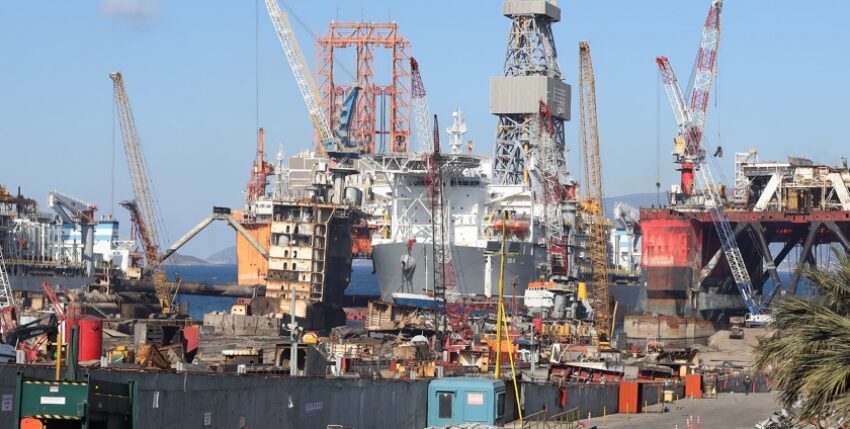The new Hong Kong Convention is intended to make the scrapping of old ships safer and cleaner.
The existing EU regulations are complicated. The Maritime Cluster Northern Germany (MCN) supports ship owners and recycling companies in understanding the new regulations.
With the entry into force of the Hong Kong Convention of the International Maritime Organisation (IMO), international regulations for the recycling of ships will apply from the end of June 2025. However, in addition to the new regulations and the EU Ship Recycling Regulation (EU SRR), which has been fully implemented since 2020, other regulations also apply. The Maritime Cluster Northern Germany, together with the GreenShipping Niedersachsen competence centre, has therefore developed a "Overview of ship recycling regulations from an owner's perspective" presented. The current study explains the key aspects of the relevant regulations to shipping companies, ship managers and potential operators of recycling facilities. The author is Henning Gramann, whose GSR Services GmbH supports recycling companies and ship owners worldwide with professional and environmentally friendly ship recycling.
The Hong Kong Convention is intended to improve practices in the dismantling of ships, which have been criticised internationally for many years, with regard to environmental protection and occupational safety and to define uniform standards and control options. The new regulations come into force long before the last voyage of a ship for scrapping. For new ships, the shipyard must draw up a register of hazardous materials used on board. During operation, this "Inventory of Hazardous Materials" (IHM) must be continuously maintained by the owner of the ship and recertified every few years.
Study author urges ship owners to handle the new regulations with care
In future, the IHM can be checked during port state controls and is an indispensable prerequisite for the legal and safe recycling of a ship. In the MCN study, Gramann also warns shipowners to handle the Hong Kong Convention with care due to the responsibilities of all parties involved: "Complex disputes and high recourse claims cannot be ruled out due to the material assets involved and possible serious consequences."
The MCN study shows that the EU Ship Recycling Regulation also places a large number of complex requirements on ship owners. In principle, the regulation transposes the provisions of the Hong Kong Convention into European law, but contains more extensive regulations, explains Gramann. Among other things, it regulates the criteria that recycling companies inside and outside the EU must fulfil for the scrapping of ships. Ships flying the flag of an EU country and ships registered outside the EU that start their last voyage from a port in the EU may only be dismantled at a facility certified and registered in accordance with EU law. The legal situation is further complicated by the fact that ships are already considered waste once the decision to recycle has been made and are subject to international and national waste legislation in a port of call during the voyage.
Ship recycling identified as a lucrative topic for the German maritime industry
Analysts expect around 15,000 ships to be scrapped worldwide in the coming years. The Leibniz Centre for Tropical Marine Research in Bremen expects around 20 million tonnes of steel scrap from ship recycling every year from 2033. According to the MCN study, there are still no significant scrapping capacities within Europe. Against this backdrop, the Maritime Cluster Northern Germany identified the recycling of cargo and passenger ships and offshore wind turbines as a lucrative field of activity for the German maritime industry several years ago and put it up for discussion at a whole series of events.
Text: MCN / Rudel / mfo







